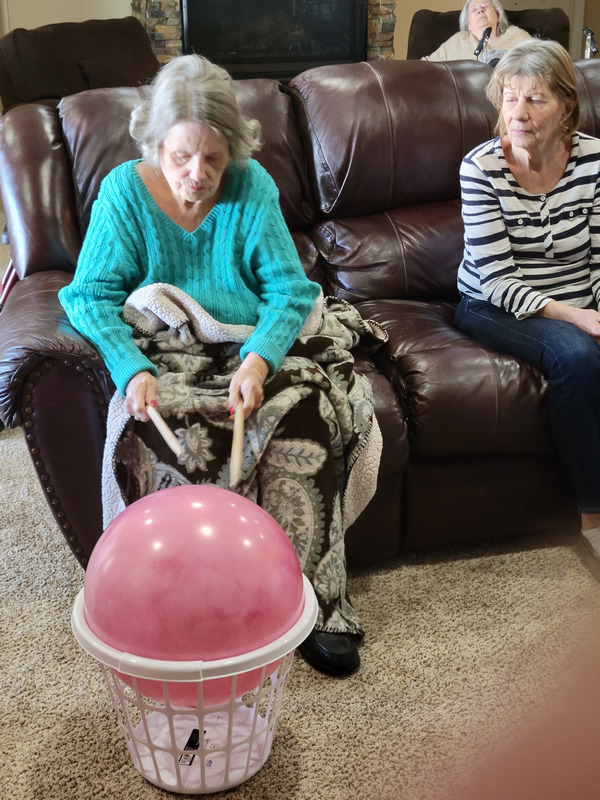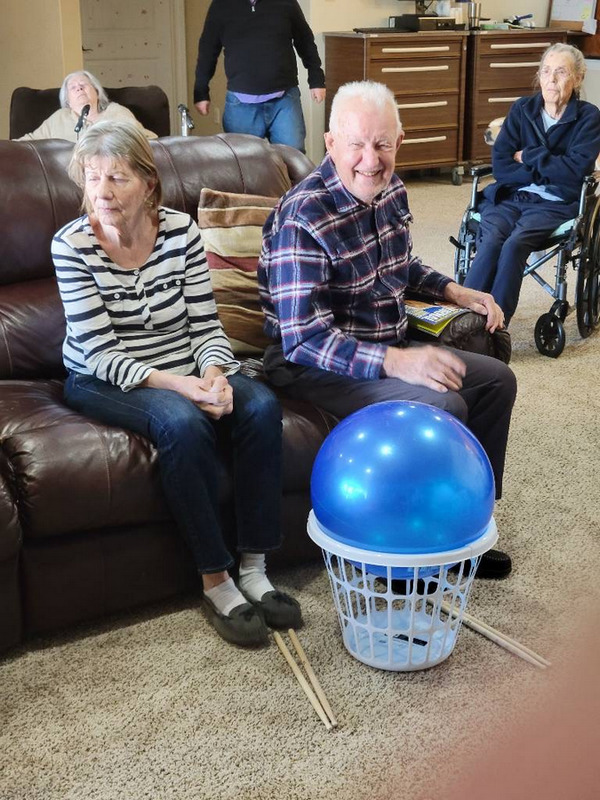Music therapy for seniors is a wonderful way to help with dementia.
Music improves mood, reduces pain, and increases socialization, among other things. It’s time to start incorporating music into your senior loved one’s daily routine if you haven’t already!
This article explores the benefits of music therapy for seniors with dementia and how it can help them cope with cognitive decline.
There are so many benefits that come from practicing an instrument or singing regularly:
• improvements in memory function in both children and adults
• better sleep patterns
• reductions in anxiety
• increased creativity
• improved cognitive abilities like attention span and language skills
All these factors have helped make music one of the most important therapeutic tools available today. These advantages also apply directly to seniors living with Alzheimer’s disease and other forms of dementia.
Seniors with dementia have a myriad of needs, and, like the general population, music can help.
Music therapy is not just about listening to pleasant tunes or playing an instrument; it’s also about creating your own sounds by singing or tapping on drums with other people.
Singing reduces anxiety in seniors with dementia and improves their moods. Engaging more cognitive skills needed for speech – such as remembering lyrics.
As seniors get older, they often show less interest in socializing and making new friends, leading them into depression or withdrawal from society. Music is one way you can ease this process by providing opportunities for interaction during group activities.
In addition to these benefits, many others come with music therapy for seniors with dementia. It’s an easy way to provide stimulation, and it can help with mood regulation, cognitive functioning, motor control (hand coordination), memory improvement, and socialization skills – to name a few.
Music therapy for seniors with dementia has shown promising results in many studies worldwide. Music is such a powerful tool that connects us all together. It provides those who are struggling with feelings of isolation or depression a place where they may find healing from their symptoms.
Music Exercises the Brain and Awakens Long Term Memory

Progressive brain disorders damage our thinking, memory, motor function, and can cause an apparent personality change. For those with Alzheimer’s in particular, the memory and language centers of the brain are progressively damaged.
In the initial stages of Alzheimer’s, degeneration is mainly found in the temporal and parietal lobes, causing memory issues. In particular, the hippocampus tissue, where memories are stored, begins to die off. However, research suggests that the synapsis of musical memory works independently from other memory systems.
Vissarion Shebalin, a Russian composer, suffered a stroke in his late life. Though he lost his ability to speak or discern speech, he retained the ability to compose music until his death a decade after his stroke.
Though language and music were thought to contain similar structural elements to understanding the syntax of speech and music, research shows that playing or simply listening to music affects numerous parts of the brain, effectively giving large areas of your brain a workout. Because various brain areas are involved in music processing, musical memory tends to outlast semantic or episodic memories in those with Alzheimer’s.
As music activates different brain areas, interacting with music causes these different areas to communicate, strengthening the brain’s visual, executive, and salience networks. Additionally, researchers have concluded that personally, meaningful music might positively affect the attention and motivation of those with Alzheimer’s. As music widely exercises different parts of our brain, it reaches areas of the brain unaffected by progressive brain disorders.
For musicians, years of mastering their craft have allowed their knowledge of music to be stored as procedural memory or, more commonly, as “muscle memory.” Though Alzheimer’s typically affects short-term memory initially, long-term memories, even procedural memories eventually erode, though this usually happens in the later stages of the disease.
A case study of an 82-year-old musician with Alzheimer’s disease showed the preserved ability to play various compositions from memory. Interestingly, he could not identify the pieces or composers he was playing. This suggests Alzheimer’s disease can spare the anterograde and retrograde procedural memory.
Therapists design musical therapy to address their patients’ psychological, cognitive, and even physical needs. Treatment includes the playing, creation, or movement to music. However, you don’t have to be a music therapist to help seniors with Alzheimer’s enjoy music!
Caregivers can offer musical experiences tailored to various situations, such as motivation, entertainment, or relaxation. Music can also unveil dormant memories for those with Alzheimer’s disease.
5 Ways Music Therapy Helps Seniors with Dementia
- Music releases oxytocin, which reduces anxiety and stress.
- Group musical activities promote trust, bonding, and personal expression.
- Singing, in particular, gives the added benefit of increasing blood oxygenation and lung capacity.
- Drum circles can improve motor function.
- Dancing or moving to music is another physical outlet that can improve motor function, balance, and overall vitality.
Music Therapy and Dementia - Conclusion
As more seniors are being diagnosed with Alzheimer’s, this type of non-pharmacological treatment is widely available and an essential tool for your loved ones.
As you can see, music therapy helps seniors with dementia in many ways. It provides a sense of belonging, stimulation and can help improve moods, cognitive functioning, hand coordination, and memory improvement, to name just a few. Music has the power to connect people. It’s also an essential factor that helps those struggling with isolation or depression to find healing from their symptoms.
Music therapy for seniors living with dementia offers unique benefits not found elsewhere. Benefits include enhancing socialization skills and providing opportunities for interaction during group activities–giving family caregivers peace of mind knowing their loved one is receiving the best care possible under challenging circumstances.

Innovative programs like these are paving the way forward for senior health care, so it remains relevant as our population ages into the future! If you’re interested in learning more about music therapy for seniors living with dementia, feel free to contact Applewood Our House.
We create individualized music therapy programs for seniors who have been diagnosed with dementia. Music helps manage their symptoms better to enjoy life more fully in each stage of the dementia process!






